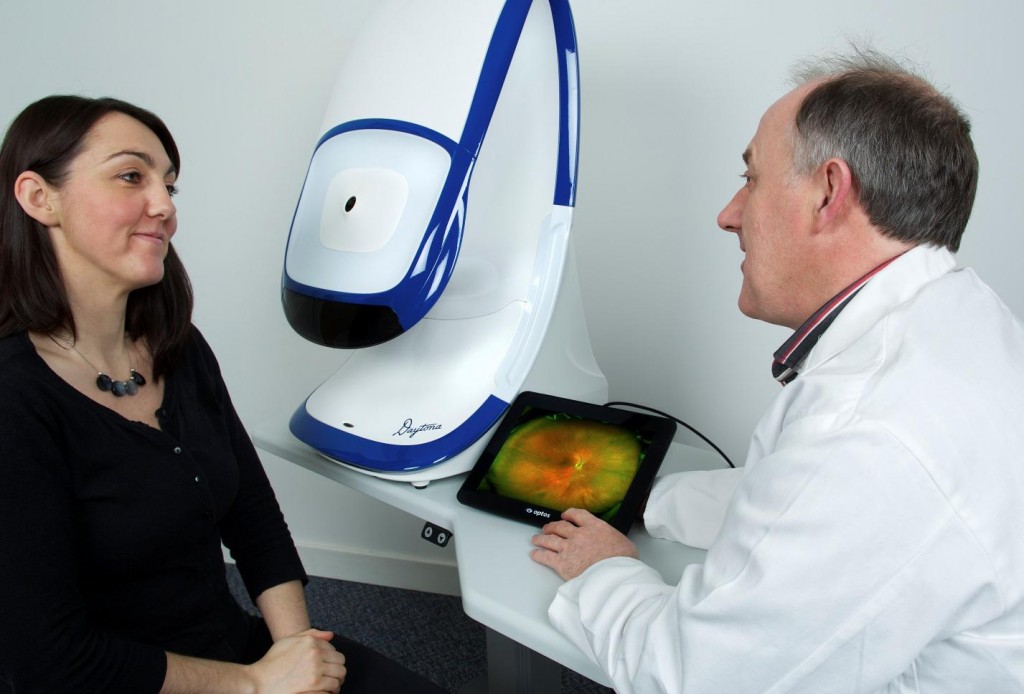Eyecare professionals generally recommend that adults should have a comprehensive eye exam every two years and children and seniors should have one annually. Unfortunately, many cases of lost or damaged vision occur each year because people neglect eye exams until they experience a problem with their vision.
By the time vision changes are noticed, the damage could be permanent. While vision alone is a significant reason to maintain regular exams, a retinal screen could also help save your life.
Here are some of the ailments and illnesses a comprehensive eye exam, including a retinal screen, can detect:
- — Glaucoma – Usually caused by extra pressure in the eye, glaucoma rarely has any symptoms before damage to your optic nerve has already happened. A loss in peripheral vision and, at more advanced stages, a loss in central vision is permanent and unable to be restored. Your doctor would be able to detect changes that signify glaucoma during a regular eye exam and begin treatment immediately to get the best results for your vision.
- — Diabetic Retinopathy – Poorly or uncontrolled blood sugar can cause damage the vessels in the eye resulting in diabetic retinopathy. While blindness can be caused by diabetes, a retinal screen could detect this ailment in its early stages, possibly avoiding and preventing vision loss.
- — Rheumatoid Arthritis – While most people would never think of their eyes when it comes to rheumatoid arthritis or other autoimmune forms of the disease, the inflammation that occurs in the joints can also present in the eyes. Known as uveitis in the field of Ophthalmology, this inflammation can have serious consequences to your vision if it remains undetected.
- — Heart Concerns – Due to the many blood vessels forcing blood through the retina, cardiovascular issues such as high cholesterol, hypertension and stroke potential may be detected during a comprehensive eye exam. Regular, comprehensive eye exams are vital to your vision and health, and optomap® ultra-widefield imaging should be included as part of your exam to view 200 degrees of the retina with one scan in a patient-friendly manner.
Since many of the aforementioned conditions often present in the periphery, optomap ultra-widefield retinal imaging, which images 200 degrees of the retina in a single capture, can assist eyecare professionals detect ailments and conditions sooner, and, possibly improve outcomes for your patient’s vision and overall health.
Image courtesy of Optos.
